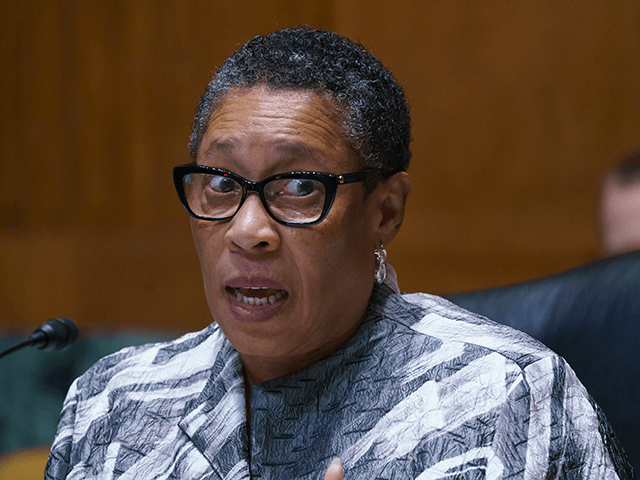Housing and Urban Development Secretary Marcia Fudge connected student loan debt to waning black homeownership Sunday.
“Who has student debt? Poor people, Black people, brown people. We’re the people who carry most debt. And so the system’s already skewed toward us not being creditworthy,” she told Axios on HBO.
“If they want to purchase a home — maybe $200,000 or in that ballpark — [if] they have $75,000 worth of student debt, they don’t qualify,” she said. “Once we make the adjustments we’re going to make, that same person will qualify.”
“Once we make the adjustments we’re going to make that same person will qualify, and will qualify at a rate that gives them an opportunity to go into a home with some equity, but also be so vested in that home that they can afford to stay in that home,” she added.
Fudge’s comments come as the Federal Housing Administration (FHA) is revising its student loan monthly payment calculations to remove “barriers and provide more access to affordable single family FHA-insured mortgage financing for creditworthy individuals with student loan debt, which has a disproportionate impact on people of color.”
Fudge additionally noted in the interview that HUD has “never totally enforced the Fair Housing Act” to prevent housing discrimination.
By subscribing, you agree to our terms of use & privacy policy. You will receive email marketing messages from Breitbart News Network to the email you provide. You may unsubscribe at any time.
“That is why we are doing things like homeownership assistance, why we’re addressing the student loan issue, why we’re looking at how credit is distributed,” Fudge explained. “For people of color, especially Black people, homeownership is wealth. It is not only wealth to us, but it is generational wealth.”
Fudge’s is not the only Democrat attempting to address the “student loan issue.” Sen. Bernie Sanders (I-VT) has proposed legislation for tuition-free college.
The cancelation of school tuition, however, would benefit students from “higher income families,” according to the Brookings Institute.
In a study titled “Who would benefit most from free college?” Brookings wrote, “Students from higher income families would receive a disproportionate share of the benefits of free college, largely because they tend to attend more expensive institutions.”
“Free college, which does not address these expenses, leaves families from the bottom half of the income distribution with nearly $18 billion in annual out-of-pocket college costs that would not be covered by existing federal, state, and institutional grant programs,” the study explains.

COMMENTS
Please let us know if you're having issues with commenting.